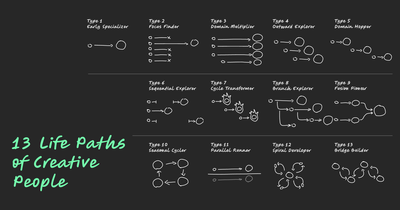Value Creation vs Value Extraction

A Complaint on Value Extraction
Recently, I've gotten obsessed with this show, "Rikuoh" which is a fictional Japanese drama about the CEO of a tabi manufacturer getting into the the running shoe business as their tabi sales dwindle in a modernizing Japan.
A character, Sakamoto, stuck out to me and reminded me of Patio11's, "Doing Business in Japan" blog post. Sakamoto is the account manager at the bank that the Rikuoh team uses and is the person who initially pushes the flailing company onto this journey as they request another loan from the bank.
Their interaction reminded me of this part of Patio11's blog post:
Doing business with Japanese companies frequently resembles It’s A Wonderful Life. “Customer relationships” are not an empty phrase — many business relationships where one is approximately equivalent to a row in the database in the United States are, instead, expected to be relationships between two actual people.
Patio recounts a few anecdotes of how his banker, Taro, was extremely attentive and helpful. Taro would offer advice in Patio's best interests and even call the day after the Touhoku earthquake to ensure he was ok. And when asked why a small-time banker would have knowledge about international banking policies, Taro would reply with, "accordingly, it is my business to know this.”
In the show, Sakamoto embodies this level of care, supporting the Rikouh team through the many trials of pivoting into a cutthroat footwear sector.
Which only led me to think... when has an American banker of mine (from a large and trusted brand) ever provided this service? Why did I get contacted by another younger banker behind my rep's back to come in? Why did he then point me to their investment advisor who then tried to shill some new low-risk investment product that would have lost me probably half of my savings? Seriously, I'm glad I declined saying that their strategy was too risky going into the new Trump presidency (while the advisor assured me again and again this was the right move).
But poor investment judgment aside, I believe the answer to this has plenty to do with incentive structures. I mean, what are American investment bankers if not realtors for businesses?
And I don't see this as an isolated situation with just financial services. As someone who was beginning to think about internships and careers during the decade plus of a bullish tech-driven economy, I watched many of my peers calculate their total compensation and perks. Conversations during and after college were often about how they could maximize their tax situation with IRAs and optimize their wellness or education budgets.
I'm not saying employees should not advocate from themselves (they absolutely should), but ultimately, this has shifted the narrative to one of value extraction.
And as Covid descended upon us, the conversations went from optimal tech job hopping to explorations on overemployment, all towards the goal of financial independence and early retirement. The north star was how do I do the least amount of work to gain the most amount of money.
Again, this isn't a complaint about the employees making these calculations. I'm no saint and plenty guilty for learning to play the same game. I was just never fortunate enough to work in a FAANG+ company, much to the dismay of my Asian parents.
The problem is top-down and in the setting of incentives. Or rather, the creation of perverse incentives. Perhaps Robert Caldini should have renamed his book on influence to exactly that.
Now, as a business owner and operator (in the service business too), it's something I constantly see externally and have to monitor for internally. Value extraction often feels like the goal between businesses too.
Rhetorical, but how often do you see this situation:
- Sales sells the product through sophistry and either the engineering team crunches to deliver on the non-existent feature or the product becomes shelfware until the annual license lapses.
- "Disruptive" startups emerge denouncing those products only to end up in the same vicious cycle as VC's pressure them to triple triple double double double.
- Ultimately, the companies that excel at this game grow their valuations for the eventual exit.
Value Creation: A Bitter Antidote
This isn't an attempt to preach or be glib about how other businesses are doing it wrong and being evil in the pursuit of money. I write this because I've surpassed the minimum requirement of mistakes to have this become a lucid thought.
This is the way out, I hope:
What I constantly go back to is the first principle that a business, at its core, is a promise. And the singular most important goal of that business is to deliver on that promise. That builds reputation and credit.
And as your business exists, you build a layercake of promises. To your customers, your employees, to your partners. And you do everything you can to keep delivering those promises. And most of all, you do not make promises you can't keep. So if you happen to find yourself unable, you apologize correctly and assess whether or not you should keep making that promise.
Sounds simple, but honestly, it's backbreaking work. You also have to start one step earlier. You have to understand the actual promise you are making each time. And you have to consider if the promise you are making is actually one you can keep. And, in turbulent times, you have to be okay with the grueling amount of work it takes to deliver.
And perhaps, don't entice your employees with the promises of riches to come with options and a sizeable outcome. What if you promised them things more within your control, like an excellent work experience–a place to do what they love to do, a place to find like-minded individuals who will push them and grow with them, and a place of psychological safety. Promise stability, steady income growth, and employment by ensuring you manage your risk by not overspending, overhiring, or overindulging.
For customers, structure the promise (and the product/service you provide) into one that they actually need and one that you're intent on delivering on. You need to deeply understand what the customer is buying from you. Yet, this is where I see one of the most grostesque examples of value extraction. Often because there is an information asymmetry where the company is ultimately just able to get away with it with most customers.
Example: Imagine you run a productized email marketing service for small businesses at $497/month. Your package is straightforward: you manage their email platform, create and send four newsletters per month, maintain their subscriber list, and provide open rate analytics. The newsletters use beautiful templates you created as an initial project.
A local bakery signs up for your service. For three months, you've delivered exactly what was promised: four beautifully designed newsletters each month, sent on schedule, with decent open rates. All deliverables have been checked off and approved.
Scenario 1: The bakery owner emails you: "My cousin mentioned she never sees our newsletters. When I asked her to check, she found them buried in her Gmail Promotions tab. I tested with other customers and most have the same issue. Can we get our emails to show up in the main inbox? This seems to be hurting our results."
Scenario 2: During a routine check, your team notices the bakery's emails are going to the Promotions tab in Gmail for 90% of subscribers, significantly reducing visibility. This happens because your template uses coding that triggers Gmail's promotional filters. A simple fix—adjusting the HTML structure and reducing image-to-text ratio—would likely move these emails to the Primary tab, potentially doubling open rates.
What would you do?
Follow the Letter of the Service: Explain that redesigning the newsletter templates would be scope creep since it requires additional work not covered in the original agreement. Offer to make these improvements for an additional fee.
Honor the Spirit of the Agreement: Recognize that the client hired you not just to send pretty newsletters, but to effectively reach their customers' inboxes. Implement the HTML adjustments at no additional charge, acknowledging that effective delivery is an implicit part of any email marketing service.
The bakery owner doesn't understand email deliverability. That's why they hired experts like you. Yes, redesigning templates isn't explicitly included in your deliverables. But creating emails that actually reach inboxes is part of the underlying purpose of the service. Holding the client to the fact that they approved the deliverable and treating this fundamental functionality as "extra" takes advantage of the client's limited technical knowledge. Many optimize for this level of value extraction.
In my opinion, you fix the emails in both cases and eat the cost. You recognize that the promise was always the spirit of the agreement. Then you also check across your other clients to ensure this fix is applied across the board.
From my experience, by aligning your deliverables with their actual business needs rather than rigidly sticking to what was explicitly requested, you transform from a mere service provider to a valuable partner. Also, partners are the ones that get long-term retention and great referrals.
That's how you get on track of collaborative value creation. Not "value" in the private equity or VC sense of valuations. Value like Toro and Sakamoto. Decisions and actions made in the other parties' best interests.
Also, watch Rikuoh. They make some silly business decisions in this fictional Japan, but their indomintable human spirit literally brought tears to my eyes.







Member discussion